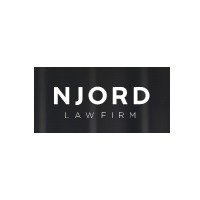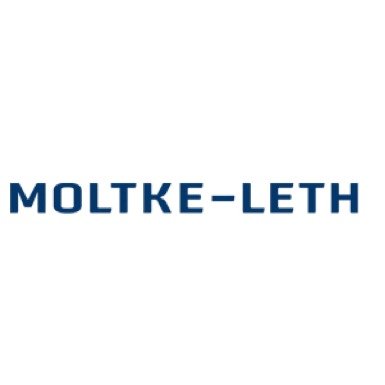Best Real Estate Lawyers in Copenhagen
Share your needs with us, get contacted by law firms.
Free. Takes 2 min.
Free Guide to Hiring a Real Estate Lawyer
List of the best lawyers in Copenhagen, Denmark
About Real Estate Law in Copenhagen, Denmark
Real estate law in Copenhagen, like in the rest of Denmark, is characterized by a well-regulated market that balances tenant and landlord rights, stresses environmental sustainability, and places significant importance on urban planning. The Copenhagen real estate market is influenced by its unique economic status, urban development plans, and a steady demand for residential and commercial properties. With its strategic location and vibrant economy, Copenhagen has become an attractive area for domestic and international property investors, necessitating a solid grasp of the local real estate laws and stipulations.
Why You May Need a Lawyer
There are several scenarios where an individual or business may require legal expertise in real estate within Copenhagen:
- Navigating property transactions: Real estate transactions, whether buying, selling, or leasing property, involve complex legal documents and contracts that a lawyer can help interpret and negotiate.
- Dispute resolution: Disagreements between tenants and landlords, boundary disputes, or issues with property sales can arise, requiring legal mediation or counsel.
- Contract review and drafting: Lawyers ensure that all contracts are legally sound and protect the interests of their clients, eliminating potential future conflicts.
- Regulatory compliance: Understanding zoning laws, building codes, and environmental regulations can be intricate, and a lawyer ensures compliance to avoid legal issues.
- Inheritance and property settlements: Legal advice is essential when dealing with property as part of inheritance or divorce settlements to ensure fair distribution.
Local Laws Overview
Copenhagen's real estate laws are governed by both national statutes and local regulations. The Danish Property Act governs property transactions, emphasizing transparency and fairness. Key aspects of local laws include:
- Zoning laws: These dictate land use, affecting residential, commercial, and industrial developments.
- Rent regulation: Denmark has extensive rent controls, particularly for older properties, to safeguard tenant interests.
- Ownership restrictions: Non-EU citizens face restrictions when purchasing property in Denmark but may apply for special permission.
- Environmental regulations: Emphasis is placed on sustainable real estate development to align with Denmark's commitment to reducing carbon footprints.
- Conveyancing regulations: Legal procedures for transferring property ownership are detailed and often require professional legal guidance.
Frequently Asked Questions
What is the process of buying property in Copenhagen?
The process typically involves initial property searches, negotiating and signing a purchase agreement, securing financing, conducting due diligence, and transferring ownership through a deed registration at the land registry.
Can a foreigner buy property in Denmark?
Foreigners from outside the EU/EEA need permission from the Danish Ministry of Justice to purchase property unless they have lived in Denmark for five consecutive years.
What taxes are associated with property transactions?
Property buyers must pay stamp duty (currently 0.6% of the purchase price) and land registration fees. There are also ongoing property taxes levied by municipalities.
How are tenancy agreements regulated in Copenhagen?
Tenancy agreements are highly regulated, with rules on notice periods, rent controls, and maintenance responsibilities to protect tenant rights.
What should be in a property sale contract?
Key components include the property description, purchase price, financing contingencies, closing date, and any conditions or warranties.
Can landlords increase rent freely?
No, rent increases are subject to regulation, especially in older buildings, requiring justification based on maintenance costs or comparable rental levels.
What are squatters’ rights in Denmark?
Denmark recognizes long-term occupancy rights under certain conditions, but specific legal procedures must be followed to claim such rights.
How does one resolve a property boundary dispute?
These disputes are often solved through mediation or arbitration. If unresolved, legal action may be necessary, requiring evidence like land survey records.
Is property insurance mandatory in Copenhagen?
While not legally required, property insurance is highly advisable to protect against damages like fire, theft, or natural disasters.
What legal steps are involved in commercial real estate leases?
Commercial leases require detailed contracts specifying terms, responsibilities, and lease duration. Legal advice is recommended to ensure compliance with business laws and regulations.
Additional Resources
For further assistance, various resources can provide guidance and support, such as:
- The Danish Bar and Law Society, which can help find qualified legal representation.
- The Copenhagen Land Registry, offering information on property transactions.
- Local real estate agents specialized in Copenhagen's market dynamics.
- The Danish Ministry of Housing, providing insights into housing policies and regulations.
- The municipality of Copenhagen, for details on local zoning and urban planning.
Next Steps
If you require legal assistance with real estate in Copenhagen, consider taking the following steps:
- Evaluate the need for legal advice based on your situation, whether it involves transaction guidance, dispute resolution, or regulatory compliance.
- Research and contact legal professionals specializing in real estate within Denmark, ensuring they have experience with Copenhagen's specific laws and regulations.
- Prepare all relevant documents and information before consultations to enable efficient and productive legal guidance.
- Discuss the scope of services, fees, and expected timelines with your chosen legal advisor to establish clear expectations.
- Stay informed about changes in local laws and real estate market trends to make informed decisions in collaboration with your legal advisor.
Lawzana helps you find the best lawyers and law firms in Copenhagen through a curated and pre-screened list of qualified legal professionals. Our platform offers rankings and detailed profiles of attorneys and law firms, allowing you to compare based on practice areas, including Real Estate, experience, and client feedback.
Each profile includes a description of the firm's areas of practice, client reviews, team members and partners, year of establishment, spoken languages, office locations, contact information, social media presence, and any published articles or resources. Most firms on our platform speak English and are experienced in both local and international legal matters.
Get a quote from top-rated law firms in Copenhagen, Denmark — quickly, securely, and without unnecessary hassle.
Disclaimer:
The information provided on this page is for general informational purposes only and does not constitute legal advice. While we strive to ensure the accuracy and relevance of the content, legal information may change over time, and interpretations of the law can vary. You should always consult with a qualified legal professional for advice specific to your situation.
We disclaim all liability for actions taken or not taken based on the content of this page. If you believe any information is incorrect or outdated, please contact us, and we will review and update it where appropriate.
Browse real estate law firms by service in Copenhagen, Denmark
Copenhagen, Denmark Attorneys in related practice areas.

















